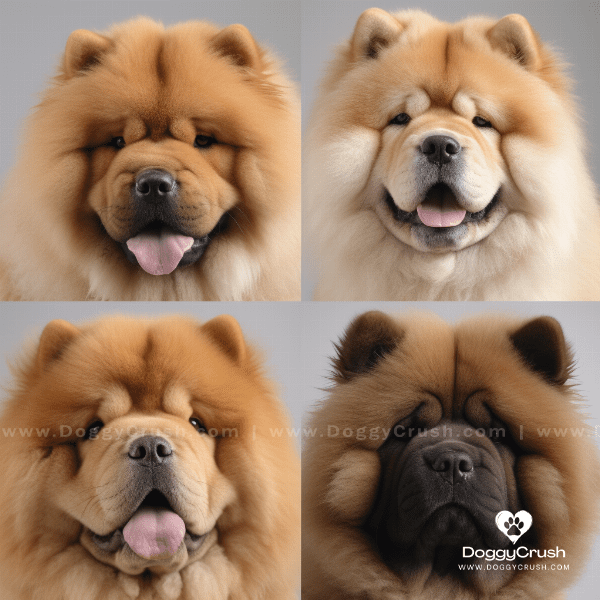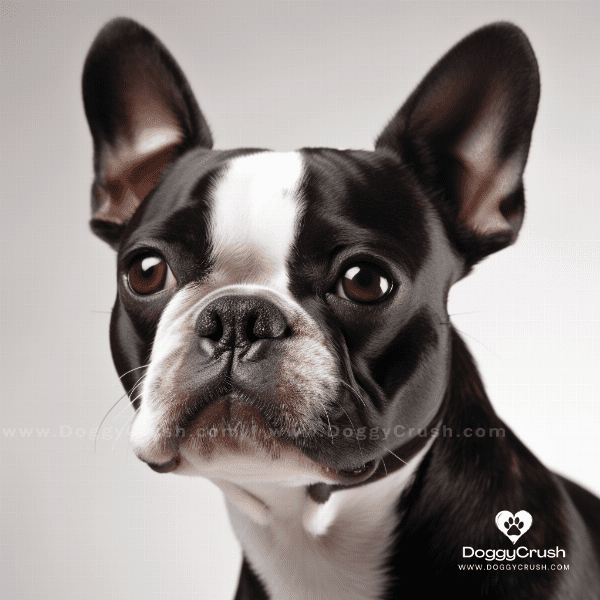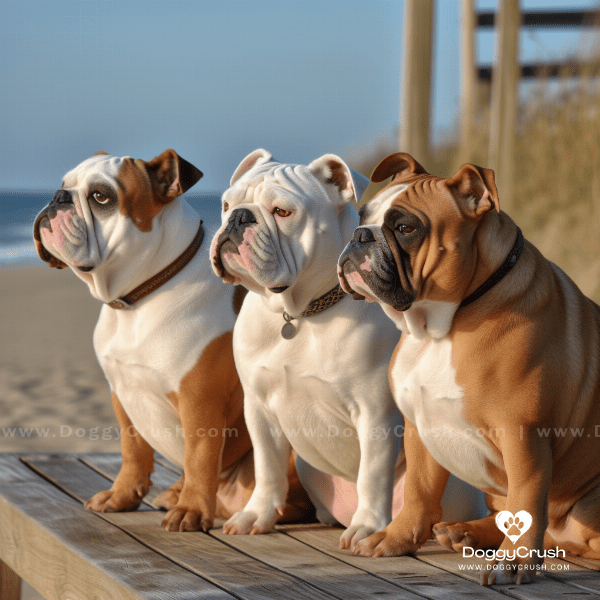Table of Contents
- The Origins of the Chow Chow Dog Breed
- Physical Characteristics of the Chow Chow Dog
- Temperament and Personality Traits of the Chow Chow Dog
- Training and Socialization of the Chow Chow Dog
- Chow Chow Dog Health Concerns and Care
- Chow Chow Dog Nutrition and Diet
- Grooming and Maintenance of the Chow Chow Dog
- Chow Chow Dog Exercise and Activity Needs
- Chow Chow Dog as a Family Pet: Pros and Cons
- Finding and Choosing the Right Chow Chow Dog for You
The Origins of the Chow Chow Dog Breed
The Chow Chow dog breed is one of the oldest Dog breeds in the world, with a history that can be traced back thousands of years to ancient China. The exact origins of the breed are still somewhat of a mystery, but there are several theories about how they came to be.
Theories on the Chow Chow’s Origins
One theory is that the Chow Chow originated in Mongolia, where they were used for hunting and herding. Others believe that they were bred by the Chinese to be used as guard dogs in temples and palaces.
Regardless of their exact origins, it is clear that the Chow Chow played an important role in Chinese culture. They were often used in religious ceremonies and were considered a symbol of good luck.
Early History of the Chow Chow Dog Breed
The Chow Chow was first introduced to the Western world in the late 18th century, when British merchants brought them back from China. They quickly became popular as show dogs, and in 1903, the Chow Chow was officially recognized as a breed by the American Kennel Club.
In the early 20th century, the Chow Chow was used as a sled dog in the Arctic regions, where their thick fur and powerful build made them well-suited for the harsh conditions. Today, Chow Chows are still used as sled dogs in some parts of the world.
Unique Characteristics of the Chow Chow Breed
One of the most distinctive features of the Chow Chow is their blue-black tongue, which is believed to be a result of ancient breeding practices. They are also known for their thick, double-coat fur, which can range in color from red to black.
Chow Chows are a medium-sized breed, with a muscular build and a broad head. They have a distinctive “lion’s mane” of fur around their neck, which adds to their regal appearance.
In conclusion, the origins of the Chow Chow dog breed can be traced back to ancient China, where they played an important role in Chinese culture. Today, they are known for their distinctive appearance and loyal, protective nature, making them a beloved companion for many dog lovers around the world.
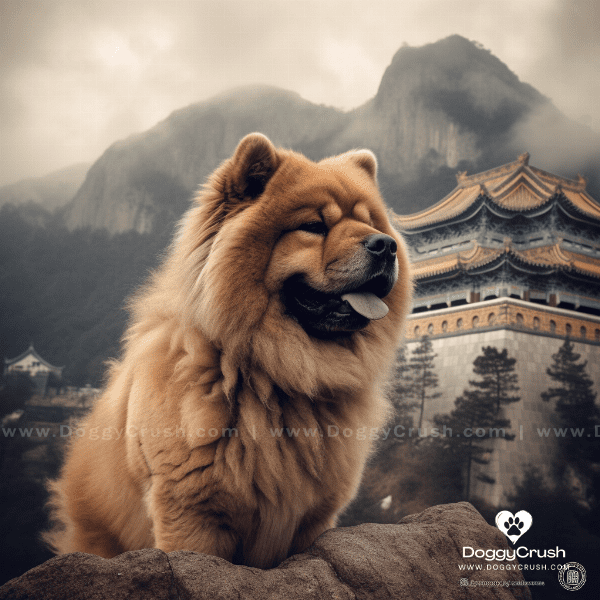
Physical Characteristics of the Chow Chow Dog
The Chow Chow is a medium-sized breed that is known for its distinctive appearance. Here are some of the unique physical characteristics of the Chow Chow:
Body Structure and Build
The Chow Chow has a muscular build with a broad head and a short, straight muzzle. They have a broad chest and a sturdy frame, which gives them a powerful appearance. The legs are straight and strong, and they have a well-rounded rump.
Coat and Color
One of the most distinctive features of the Chow Chow is its thick, double-coat fur. The outer coat is coarse and straight, while the undercoat is soft and woolly. They can come in a variety of colors, including red, black, blue, cinnamon, and cream.
Tongue and Mouth
Another unique characteristic of the Chow Chow is its blue-black tongue. This is a result of ancient breeding practices and is a distinguishing feature of the breed. Their mouth is also distinctive, with a scissor bite and powerful jaws.
Ears and Tail
The Chow Chow has small, triangular ears that are set high on the head. They have a thick, bushy tail that is carried over the back, which adds to their regal appearance.
Size and Weight
The Chow Chow is a medium-sized breed, with males typically weighing between 55 and 70 pounds and standing 18 to 22 inches tall at the shoulder. Females are slightly smaller, weighing between 45 and 60 pounds and standing 17 to 20 inches tall at the shoulder.
In conclusion, the Chow Chow is a medium-sized breed with a distinctive appearance and unique physical characteristics. Their muscular build, thick coat, blue-black tongue, and bushy tail all contribute to their regal and powerful appearance.
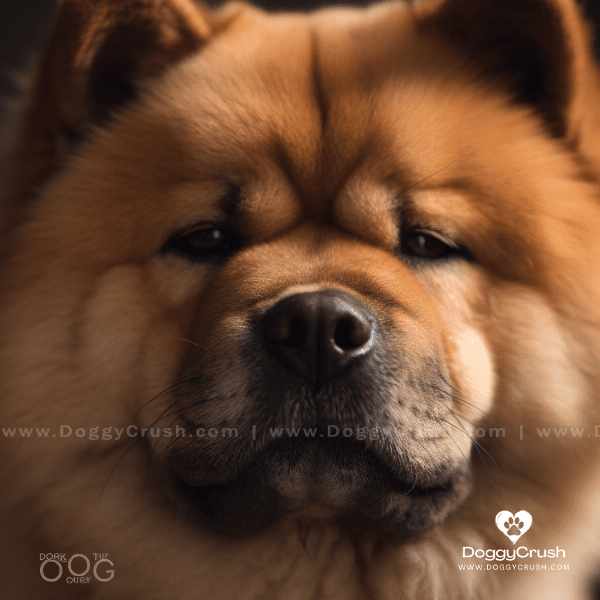
Temperament and Personality Traits of the Chow Chow Dog
The Chow Chow is known for its loyalty and protective nature. Here are some of the temperament and personality traits of the breed:
Independent
Chow Chows are known for their independent nature. They are not typically clingy or overly affectionate, but they do form strong bonds with their owners. They are also known for their stubbornness, which can make training a challenge.
Loyal and Protective
One of the most notable traits of the Chow Chow is their loyalty and protective nature. They are fiercely devoted to their owners and will do whatever it takes to protect them. This makes them excellent watchdogs, but it can also make them territorial and aggressive towards strangers.
Reserved with Strangers
Chow Chows can be aloof with strangers, and they are not typically outgoing or friendly with people they do not know. It is important to socialize them early on to prevent any aggressive behavior towards strangers.
Calm and Serene
Despite their protective nature, Chow Chows are generally calm and serene. They are not typically hyperactive or overly energetic, but they do require daily exercise to keep them healthy and happy.
Child-Friendly
Chow Chows can be good family dogs, but they may not be the best choice for families with young children. Their protective nature can lead to aggressive behavior towards children who they perceive as a threat to their family.
Adaptability
Chow Chows can adapt to different living situations, but they are typically better suited for homes with a yard where they can run and play. They can also adapt to apartment living, but they require daily exercise to prevent boredom and destructive behavior.
In conclusion, the Chow Chow is known for its loyalty and protective nature, as well as its independence and reserved nature with strangers. While they can be good family dogs, they may not be the best choice for families with young children. It is important to socialize them early on and provide daily exercise to keep them healthy and happy.
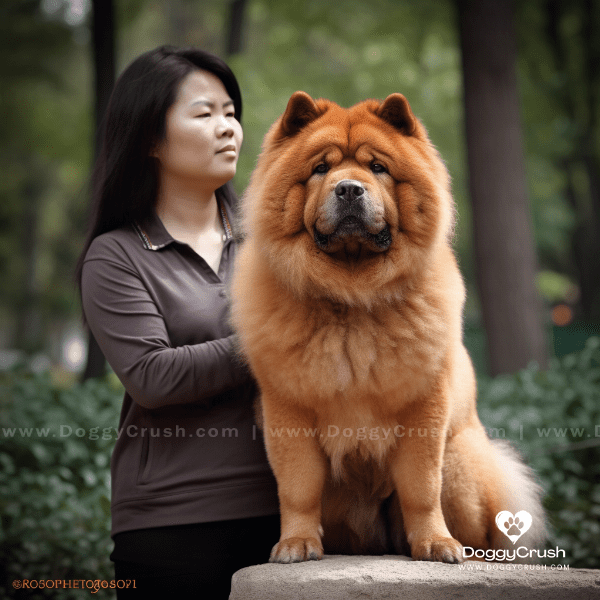
Training and Socialization of the Chow Chow Dog
Start Early
It is important to start training and socialization early, ideally when your Chow Chow is still a puppy. This will help to establish good behavior patterns early on and prevent any negative behaviors from developing.
Consistency is Key
Consistency is important when training your Chow Chow. They respond well to positive reinforcement, such as treats and praise, but they can also be stubborn and require patience and persistence from their owner.
Socialization
Socialization is also important for the Chow Chow. They can be aloof with strangers, so it is important to expose them to different people and situations early on to prevent any aggressive behavior. Socialization can also help to prevent separation anxiety and other behavioral issues.
Exercise and Mental Stimulation
Chow Chows require daily exercise to keep them healthy and happy. They enjoy walks and playtime in a secure, fenced-in yard. Mental stimulation is also important for the breed, as they can become bored easily.
Obedience Training
Obedience training is important for the Chow Chow, as they can be stubborn and independent. Basic obedience commands such as sit, stay, and come can be taught through positive reinforcement techniques.
Professional Training
If you are having difficulty training your Chow Chow, professional training may be a good option. A professional dog trainer can provide additional guidance and support, and can help to address any behavioral issues.
In conclusion, training and socialization are important for the Chow Chow to prevent negative behaviors and to establish good behavior patterns early on. Consistency, positive reinforcement, and exercise and mental stimulation are key components of training a Chow Chow. Professional training may also be helpful for owners who are struggling with training their dog.
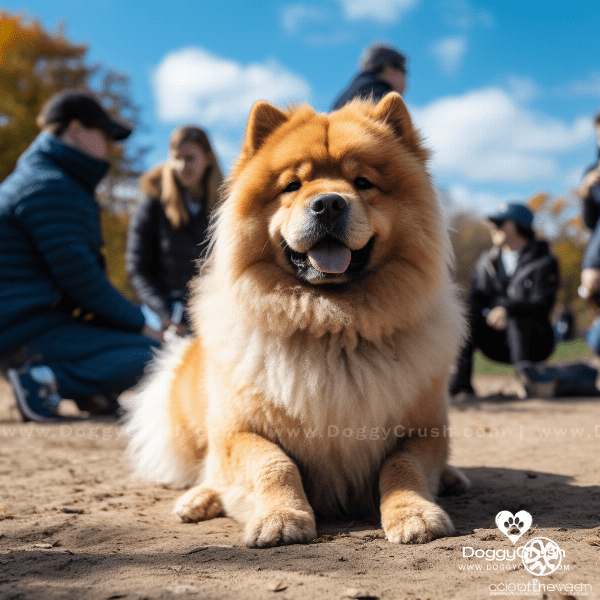
Chow Chow Dog Health Concerns and Care
Like all dog breeds, the Chow Chow is prone to certain health concerns. Here are some of the health issues to be aware of and how to care for your Chow Chow:
Hip Dysplasia
Hip dysplasia is a common issue in many dog breeds, including the Chow Chow. It occurs when the hip joint doesn’t develop properly, causing pain and mobility issues. Regular exercise and a healthy diet can help prevent hip dysplasia in Chow Chows.
Eye Problems
Chow Chows are also prone to eye problems, such as cataracts and entropion. Cataracts can cause blindness if left untreated, while entropion can cause the eyelashes to rub against the cornea, causing pain and irritation. Regular visits to the vet and proper eye care can help prevent these issues.
Allergies
Chow Chows can be prone to allergies, which can cause skin irritation and itching. It is important to provide a healthy, balanced diet and avoid exposure to allergens to prevent allergies from developing.
Obesity
Chow Chows are prone to obesity, which can lead to a variety of health issues, such as joint problems and heart disease. It is important to provide a healthy, balanced diet and regular exercise to prevent obesity in Chow Chows.
Grooming
Proper grooming is also important for the health of the Chow Chow. They require regular brushing to prevent matting and tangling of their thick coat. They should also be bathed regularly to prevent skin irritation and infection.
Regular Vet Visits
Regular visits to the vet are also important for the health of the Chow Chow. The vet can check for any potential health issues and provide guidance on proper care and nutrition.
In conclusion, the Chow Chow is prone to certain health concerns, such as hip dysplasia, eye problems, allergies, and obesity. Proper care and nutrition, regular exercise, and regular visits to the vet can help prevent these issues. Grooming is also important for the health of the breed.

Chow Chow Dog Nutrition and Diet
Proper nutrition is important for the health and well-being of any dog breed, and the Chow Chow is no exception. Here are some important things to keep in mind when feeding your Chow Chow:
High-Quality Food
Feeding your Chow Chow a high-quality, balanced diet is important for their overall health. Look for a dog food that is specifically formulated for their breed and age, and make sure it contains all of the necessary nutrients, such as protein, carbohydrates, fats, vitamins, and minerals.
Portion Control
Portion control is also important for the Chow Chow, as they are prone to obesity. Follow the feeding guidelines on the dog food packaging and adjust the portion size based on your Chow Chow’s activity level and weight.
Water
Make sure your Chow Chow has access to clean, fresh water at all times. Dehydration can cause a variety of health issues, such as urinary tract infections and kidney problems.
Treats
Treats should be given in moderation and should not make up a significant portion of your Chow Chow’s diet. Look for healthy, low-calorie treats, such as carrots or green beans, and avoid giving them table scraps or human food.
Feeding Schedule
Establishing a regular feeding schedule can help prevent overeating and obesity in Chow Chows. Feed them at the same time each day and avoid free-feeding, which can lead to weight gain.
Special Dietary Needs
Some Chow Chows may have special dietary needs, such as allergies or digestive issues. It is important to work with your vet to develop a diet that meets their specific needs.
In conclusion, feeding your Chow Chow a high-quality, balanced diet in the right portions is important for their overall health and well-being. Make sure they have access to clean, fresh water at all times and give treats in moderation. Establishing a regular feeding schedule can help prevent overeating and obesity, and some Chow Chows may have special dietary needs that should be addressed with the help of a vet.
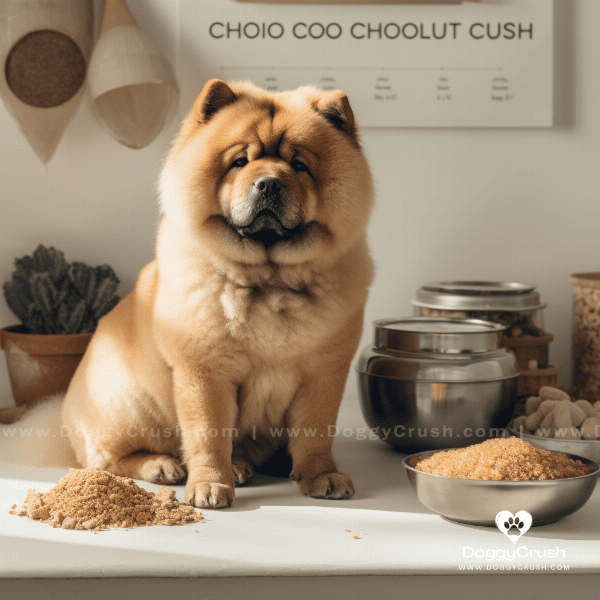
Grooming and Maintenance of the Chow Chow Dog
The Chow Chow’s thick, double-coat fur requires regular grooming to keep it healthy and tangle-free. Here are some tips on grooming and maintaining your Chow Chow:
Brushing
Regular brushing is important for the Chow Chow’s thick coat. Use a slicker brush to remove any loose fur and tangles, and a comb to detangle any stubborn mats. Brushing should be done at least once a week, and more frequently during shedding season.
Bathing
Chow Chows should be bathed every three to four months, or as needed. Use a gentle dog shampoo and conditioner, and rinse thoroughly to prevent any skin irritation. Make sure to dry their coat thoroughly after bathing to prevent any mold or mildew growth.
Nail Trimming
Nail trimming is important for the Chow Chow to prevent overgrowth and to avoid any discomfort or pain. Trim their nails every four to six weeks, or as needed. Use a sharp, high-quality nail trimmer and be careful not to cut the quick, which can cause bleeding.
Ear Cleaning
Chow Chows are prone to ear infections, so regular ear cleaning is important. Use a damp cotton ball or soft cloth to clean the outer part of their ears, and avoid inserting anything into the ear canal. If you notice any signs of infection, such as redness or discharge, contact your vet.
Dental Care
Proper dental care is important for the Chow Chow’s overall health. Brush their teeth regularly with a dog toothbrush and toothpaste, and provide them with dental chews or toys to help keep their teeth clean and healthy.
Professional Grooming
If you are unable to groom your Chow Chow on your own, professional grooming may be a good option. A professional groomer can provide a thorough grooming, including trimming their coat, cleaning their ears, and trimming their nails.
In conclusion, regular grooming and maintenance is important for the Chow Chow to keep their thick coat healthy and tangle-free. Regular brushing, bathing, nail trimming, ear cleaning, and dental care are all important components of grooming a Chow Chow. Professional grooming may also be helpful for owners who are unable to groom their dog on their own.
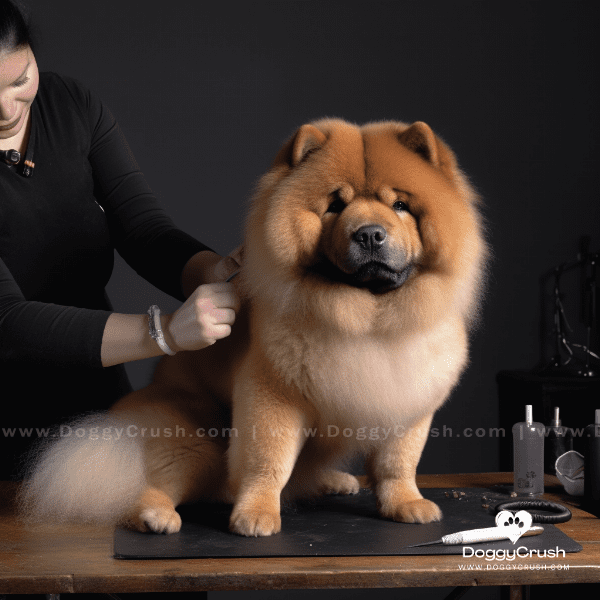
Chow Chow Dog Exercise and Activity Needs
While the Chow Chow may not be the most active breed, they still require daily exercise to keep them healthy and happy. Here are some tips on meeting the exercise and activity needs of your Chow Chow:
Daily Walks
Chow Chows should be taken on daily walks to provide them with exercise and mental stimulation. Aim for at least 30 minutes of brisk walking each day, and vary the route and terrain to keep them interested.
Playtime
In addition to walks, Chow Chows also enjoy playtime in a secure, fenced-in yard. They enjoy playing with toys, such as chew toys or puzzle toys, to keep them mentally stimulated.
Training
Training can also be a form of exercise and mental stimulation for the Chow Chow. Incorporate training exercises into their daily routine, such as obedience training or agility training.
Avoid Overexertion
Chow Chows should be exercised in moderation to prevent overexertion and joint problems. Avoid exercising them in extreme heat or cold, and watch for signs of fatigue or discomfort.
Senior Chow Chows
As Chow Chows age, their exercise needs may decrease. Adjust their exercise routine accordingly and provide them with gentle, low-impact exercise options.
Interactive Activities
Chow Chows also enjoy interactive activities, such as hiking or swimming, to provide them with exercise and mental stimulation. These activities should be introduced gradually and with caution to prevent injury.
In conclusion, the Chow Chow may not be the most active breed, but they still require daily exercise and activity to keep them healthy and happy. Daily walks, playtime, training, and interactive activities are all important components of meeting the exercise needs of the breed. Exercise should be done in moderation to prevent overexertion and joint problems, and senior Chow Chows may require gentle, low-impact exercise options.
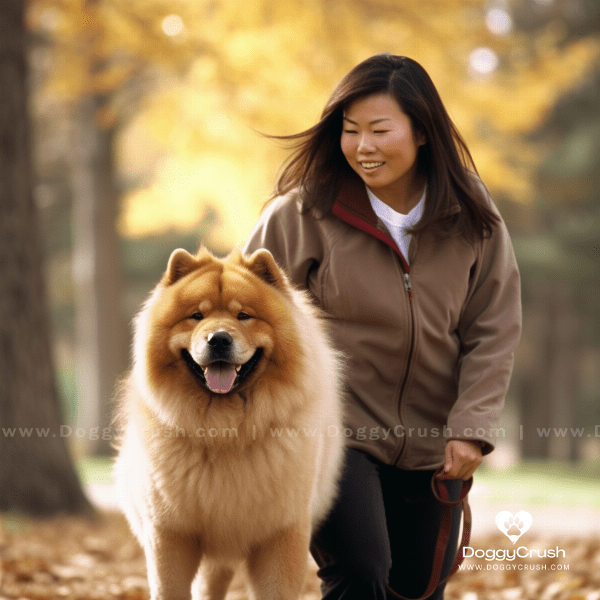
Chow Chow Dog as a Family Pet: Pros and Cons
The Chow Chow can make a great family pet, but there are also some potential drawbacks to consider. Here are some pros and cons of having a Chow Chow as a family pet:
Pros
Loyalty and Affection
Chow Chows are known for their loyalty and affection towards their owners. They bond strongly with their family and enjoy spending time with them.
Low Exercise Needs
While they still require daily exercise, Chow Chows have lower exercise needs than some other breeds, making them a good choice for families who may not have the time or energy for a high-energy dog.
Good Watchdog
Chow Chows can be protective of their family and make good watchdogs. They are naturally suspicious of strangers and will bark to alert their owners of any potential threats.
Adaptability
Chow Chows can adapt well to different living situations, including apartments and larger homes.
Cons
Potential Aggression
Chow Chows can be aggressive towards strangers and other animals if not properly socialized. They can also be stubborn and difficult to train, which can lead to behavioral issues.
Grooming Needs
The Chow Chow’s thick coat requires regular grooming to prevent matting and tangling. This can be time-consuming and costly, especially if professional grooming is needed.
Health Concerns
As mentioned in earlier sections, the Chow Chow is prone to certain health issues, such as hip dysplasia and eye problems, which can lead to costly vet bills.
Independence
Chow Chows can be independent and aloof, which may not be suitable for families looking for a more affectionate or interactive pet.
In conclusion, the Chow Chow can make a great family pet for the right family. Their loyalty and low exercise needs can make them a good fit for families who may not have the time or energy for a high-energy dog. However, potential aggression, grooming needs, health concerns, and independence should also be taken into consideration before bringing a Chow Chow into the family.

Finding and Choosing the Right Chow Chow Dog for You
If you have decided that the Chow Chow is the right breed for you, it is important to find and choose the right Chow Chow for your lifestyle and needs. Here are some tips on finding and choosing the right Chow Chow dog:
Research
Do your research on the breed and its characteristics to make sure it is the right fit for your lifestyle. Consider factors such as exercise needs, grooming needs, and potential health issues.
Breeder or Rescue
Decide whether you want to get your Chow Chow from a breeder or a rescue organization. If you decide to go with a breeder, make sure they are reputable and follow ethical breeding practices.
Meet the Dog
When choosing a Chow Chow, it is important to meet the dog in person and spend some time with them to see if their personality and energy level match what you are looking for in a pet.
Health Screening
If getting a Chow Chow from a breeder, make sure the breeder has performed health screening on the parents to reduce the risk of potential health issues in the puppies.
Temperament Testing
Consider having the Chow Chow undergo a temperament test to assess their personality and potential behavioral issues.
Puppy or Adult
Decide whether you want a puppy or an adult dog. Puppies require more time and attention for training and socialization, while adult dogs may already be trained and have a more established personality.
Lifestyle Match
Choose a Chow Chow that matches your lifestyle and activity level. If you are an active person, a high-energy Chow Chow may be a good fit, while a more laid-back Chow Chow may be a better fit for a more sedentary lifestyle.
In conclusion, finding and choosing the right Chow Chow dog for you requires research, meeting the dog in person, and considering factors such as health screening, temperament testing, age, and lifestyle match. Whether you decide to get a Chow Chow from a breeder or a rescue organization, make sure to choose a dog that matches your personality, lifestyle, and needs to ensure a happy and healthy relationship between you and your new pet.
